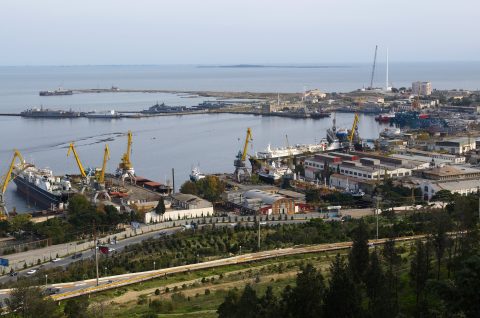PKP Cargo: ‘New Silk Road is a priority for Poland’

Polish railway operator PKP Cargo is investing heavily in its services, responding to the growing volumes of rail freight traffic between Europe and Asia. About 250 million Euros per year is spent in what the company calls a proactive approach. “This railway connection is extremely important for us”, said Andrzej Banucha of PKP Cargo. The deputy director of the Bureau for Promotion and Investor Relations will participate in the New Silk Road Conference on 27 September, in Tilburg, the Netherlands. He will explain how the company contributes to an improved connection between east and west.
PKP Cargo, the subsidiary of the Polish national railway company PKP S.A. owns all the border terminals in Poland. This also includes the crossing at Malaszewicze-Brest, connecting Poland and Belarus. This is the most popular border crossing on the New Silk Road. “In four to five years, the capacity at this terminal will be multiplied by four”, said Banucha.
Investments
The PKP Cargo official iterates that this does not mean that the terminal is currently not capable of handling the traffic volumes. “Today, we have 40 per cent of free capacity at the terminal. This border crossing is not a bottleneck, as many have stated. There is enough capacity, and this will only be increased over the coming years.”
Apart from the expansion, the company invests in more rolling stock for the transport on this route, and in more border crossings. There will also be three more border crossings with Belarus, in addition to the alternative border crossing visa Kaliningrad already in use. “We are making these investments in response to a growing demand on this route. We want to attract more traffic from and to China, because we have secured resources and investments for this purpose, and these need to be paid off by a rising traffic in the future.”
Malaszewicze
Contrary to what Banucha said, the terminal has been considered a hurdle in the transport between China and Europe. Traffic is often delayed and information about the cause of delay is scarcely available. Rolling stock for westbound train services is also scarce, claim shippers and forwarders alike.
According to the PKP Cargo official, the delays should be much less than what they were a year ago, when these were caused by construction works. “Some parts of the routes in central Poland are in renovation. Today, PKP PLK (responsible for the infrastructure and slots management in Poland) opened bypasses and the traffic is now fluid.”
Bottlenecks
“The border terminal in itself was never a problem”, Banucha continued. According to him, the problem lies on the route beyond Małaszewicze into the western direction, as there are not always free slots to enter Germany. “A train will not leave the terminal until it gets a free slot. However when looking at the map trains are waiting in Poland, so it looks like there are problems on the Polish site.”
Another bottleneck is the China-Kazakhstan border crossing at Alashankou, he said. “When looking at the real time map the biggest amount of trains is locked at that border, because there is not enough capacity at the Kazakh border terminal.”
Infrastructure upgrades
Infrastructure manager PKP PLK is currently carrying out a massive expansion plan. It is investing 20 billion Euros until 2023. Today, this is the biggest investment plan into railway infrastructure in the EU, another signal of Poland’s willingness to contribute to an improved Eurasian railway network, Banucha said.
“We have shifted our priority to the east-west traffic. We want to demonstrate that we are a reliable partner on this connection. We are making huge investments and carrying out major upgrades. We are totally aware of the demand of rail transport.”
New Silk Road Conference
Do you want to hear more about the New Silk Road, the stance of PKP Cargo or that of forwarders on the route? All these will be discussed at the New Silk Road Conference on 27 September in Tilburg, the Netherlands. More information about this conference can be found here. Here you can register for the event.
Also read:
Why Malaszewicze is the most debated place on the New Silk Road
PKP Cargo: Malaszewicze border no longer bottleneck on Eurasian railway
Małaszewicze-Brest border crossing main bottleneck on New Silk Road





